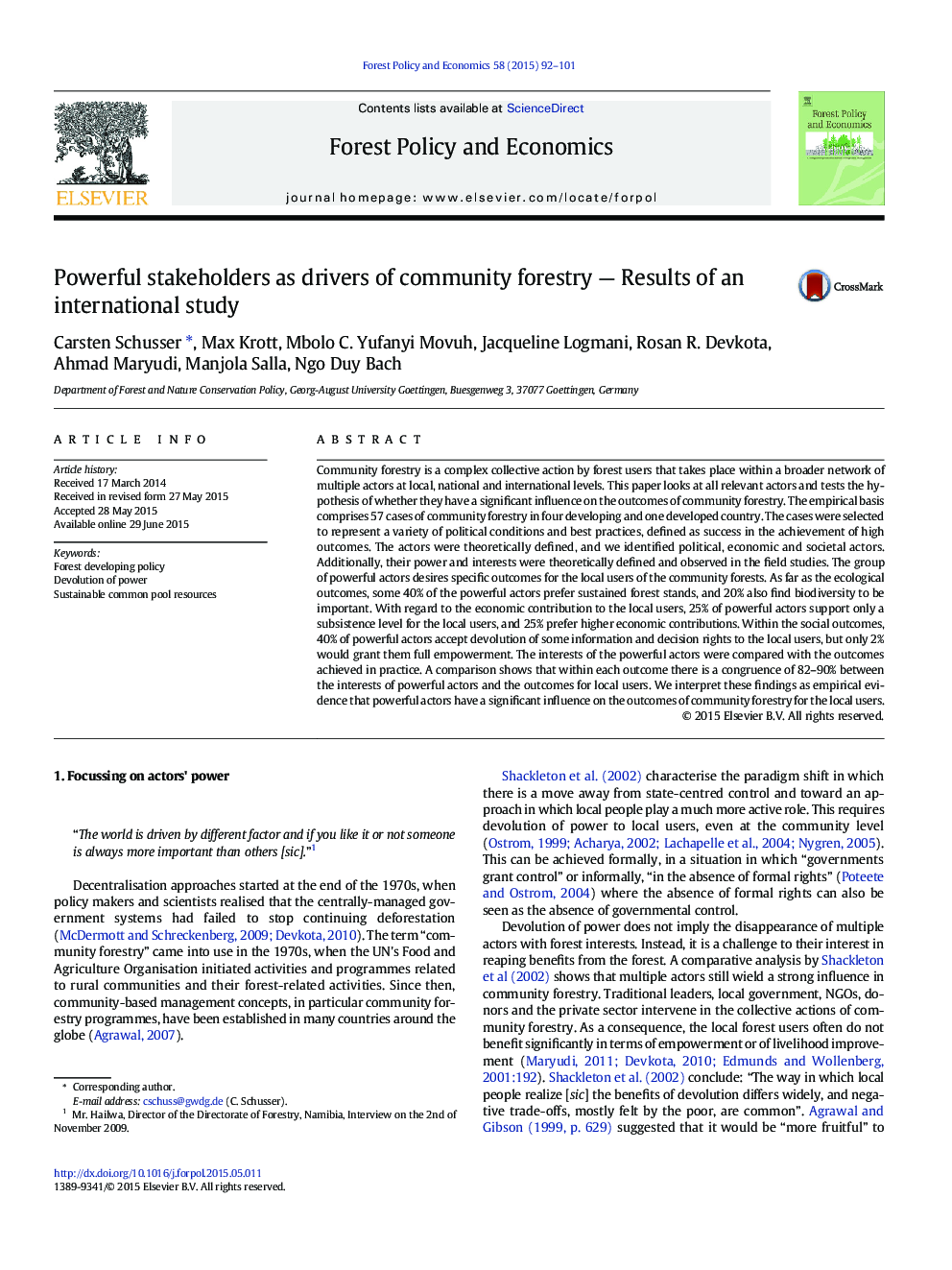| کد مقاله | کد نشریه | سال انتشار | مقاله انگلیسی | نسخه تمام متن |
|---|---|---|---|---|
| 91177 | 159754 | 2015 | 10 صفحه PDF | دانلود رایگان |
• The article uses different methods and theories to analyse actors within community forestry in 5 different countries around the world;
• It shows who are the powerful actors, which interest do they have on CF and what are the archived CF outcomes;
• It brings the powerful actors interests in relation to the archived outcome;
• It tests successfully the hypothesis that processes in community forestry are driven by powerful actors.
Community forestry is a complex collective action by forest users that takes place within a broader network of multiple actors at local, national and international levels. This paper looks at all relevant actors and tests the hypothesis of whether they have a significant influence on the outcomes of community forestry. The empirical basis comprises 57 cases of community forestry in four developing and one developed country. The cases were selected to represent a variety of political conditions and best practices, defined as success in the achievement of high outcomes. The actors were theoretically defined, and we identified political, economic and societal actors. Additionally, their power and interests were theoretically defined and observed in the field studies. The group of powerful actors desires specific outcomes for the local users of the community forests. As far as the ecological outcomes, some 40% of the powerful actors prefer sustained forest stands, and 20% also find biodiversity to be important. With regard to the economic contribution to the local users, 25% of powerful actors support only a subsistence level for the local users, and 25% prefer higher economic contributions. Within the social outcomes, 40% of powerful actors accept devolution of some information and decision rights to the local users, but only 2% would grant them full empowerment. The interests of the powerful actors were compared with the outcomes achieved in practice. A comparison shows that within each outcome there is a congruence of 82–90% between the interests of powerful actors and the outcomes for local users. We interpret these findings as empirical evidence that powerful actors have a significant influence on the outcomes of community forestry for the local users.
Journal: Forest Policy and Economics - Volume 58, September 2015, Pages 92–101
